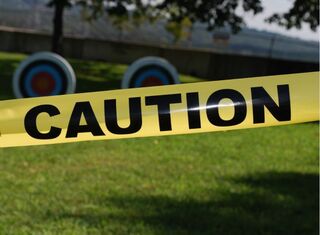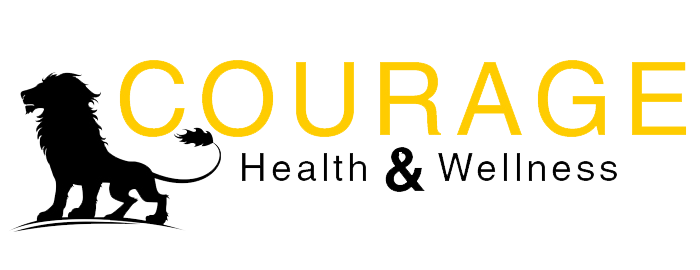Addiction: 5 Early Warning Signs
Early warning signs of addiction are not physical, but are behavioral changes.
Posted November 12, 2020 | By: Anderson Spickard Jr., M.D.

Source: Pixabay/gaertringen
The earlier the diagnosis, the better the prognosis. This medical principle applies to addiction, and the importance of recognizing early warning signs cannot be overstated. Addiction is a progressive disorder that, if left to run its course, gets worse, not better. When someone has lost their personality along with family, friends, and a job, they have lost many of life’s most important incentives for getting better.
The best-known symptoms of addiction are late-stage physical symptoms—the red face of a person with a long-time alcohol problem, the emaciation of someone who is addicted to crack, the facial sores of meth users. The earliest warning signs, however, are changes in behavior that family members, friends, and colleagues can identify.
Rationalization and Projection
“I always had a convincing reason to drink,” remembers a 45-year-old patient in long-term recovery from an uncontrollable craving for alcohol. “First I drank to be social, then to relax after work. Next, I drank to sleep, and then to forget. None of these explanations seemed like rationalizations. I had real needs and believed only alcohol could meet them.”
As craving deepens, addicted individuals begin organizing their lives, often in rigid ways, around the need for uninterrupted access to alcohol and other drugs. They may become increasingly irritated by schedule changes and blame their odd behavior on parents, partners, their children, or an unfair employer. Family members are especially vulnerable targets and will often change their own behavior to placate addicted loved ones.
Mood Swings and Personality Changes
While addicted individuals can be highly critical of other people, their own behavior may be unpredictable and can quickly change from jubilant euphoria to angry suspicion. When an addicted individual is “on the wagon” or trying to cut back, mood swings become more pronounced.
At the extreme end is the Dr. Jekyll and Mr. Hyde syndrome. For reasons not yet known, some people experience a personality change when they are drinking or using other drugs. At its worst, this transformation resembles the presence of two different personalities in one body. A loved one disappears, and an out-of-control stranger takes her place.
One of my patients was a highly moral person who, when drinking, watched pornographic movies in front of his children. Another was a kind father and husband until he drank heavily. He spent one European vacation roaming the streets in his underwear, knocking on doors and challenging people to fight. His children and wife barricaded themselves behind a door, terrified that he would make good on his promise to kill them.
When they returned home, his wife asked me to help with an intervention. It was successful in part because her husband was shocked to hear about his behavior, of which he had no memory. He willingly went to a treatment program, but it took many years before he was able to restore a relationship of trust with his family members.article continues after advertisement
Deteriorating Relationships
When I could control my drinking, I could still charm a crowd and make new friends. But when I partied, I often became a raging lunatic. One night, I taunted some fraternity guys who were in mourning for a frat brother killed in a car wreck. They jumped me in an alley, breaking my nose and leaving me with a deep gash above my eye. Except for a stranger’s intervention, they might have stomped me to death.
—James B., co-author with Dr. Spickard of The Craving Brain
Many people, like my co-author James B., begin their journey into addiction as the life of the party. As their craving deepens and their behavior deteriorates, their social circle narrows to other users or addicted individuals, feeding the delusion that heavy drinking and drug use is normal behavior. In the end, even these friends may disappear, leaving them isolated and alone.
“As an addicted person, I was a consumer of relationships and people,” says James. “When I wasn’t drinking, I was lots of fun and could easily land a good job, win people over, and make new friends. Then I would get loaded, and all my anger came pouring out. People walked away from me, or I from them.”
“For years, I went from one circle to the next, not connecting my broken relationships to my behavior and drug use. It was always everyone else’s fault—their loss, not mine.”
The family life of addicted individuals is often marred by sudden or unexplained changes, including separation and divorce. Children may run away, go to live with relatives, or otherwise prematurely separate themselves from home.
Poor Work Performance
Most addicted individuals take great pains to keep their jobs, in part to pay for their drugs. Sooner or later, however, their work performance deteriorates. They find it harder to concentrate and make simple mistakes. They may become moody or aggressive toward fellow workers and show up late for work, or not at all—especially on Mondays or after holidays.
For most addicted individuals, job-related problems are the beginning of the end. They experience a snowballing decline in physical, emotional, and intellectual function that plunges them into ever-deepening levels of chaos. For many, the endgame will be a long period of suffering and disability, and a premature, addiction-related death.article continues after advertisement
Crisis of the Spirit
The dramatic alterations in brain function caused by uncontrollable craving create profound changes in the psychological and spiritual lives of addicted persons. Many find themselves living in the deep shadows of life, strangers not just to their families, friends, and colleagues but to themselves.
“By my mid-twenties I was totally living in the dark side of my personality,” says James. “A part of me still wanted to quit using, but it no longer seemed like the real me. When an inner voice told me to get my life back on track, I wondered, Who is this stranger talking?”
The emergence of a shadow self can begin even before heavy users cross the line into addiction. Mood-altering drugs alter the frontal lobe of the brain, affecting judgment, impulse control, and inhibition. The breakdown of this ‘behavior safety system’ leaves heavy drinkers and users more vulnerable to the weaknesses that plague us all—anger, self-pity, greed, hatred, violence, inertia, and sexual betrayals, to name only a few.
When heavy users cross the line into craving, they may abandon their spiritual life, giving up practices like prayer and meditation and severing their connection with a faith community. James, by nature, was an unusually conscientious and spiritually reflective young man. At the precocious age of 11, without influence from his parents, he went searching for a church to attend. He even became an acolyte.
By his early twenties, James’s moral life was in a steep decline. He habitually told lies, verbally abused friends and strangers, and borrowed money that he knew he couldn’t pay back. The disinhibiting qualities of alcohol made it easier for him to use cocaine, which he had vowed never to do. Before long, he was gambling heavily and selling drugs.
Many addicted individuals—to their own shame and horror—find themselves in a similar downward spiral. They start hiding bottles or drugs, and lie or steal to keep their drug pipeline open. They show up for work under the influence, even when they hold the health and safety of other people in their hands. Some emotionally or physically abuse their spouses and children.article continues after advertisement
Despite appearing calm or confident, addicted individuals who violate their personal values almost always experience a deep sense of failure and humiliation. “It’s impossible to describe the emotional pain experienced by an addict,” my friend and colleague, Dr. Jordan, told me. “No matter how arrogant or self-confident he may seem, his primary emotions are shame and self-hatred.”
These feelings trap an addicted individual in a self-perpetuating cycle of drug use and self-loathing. Some, like my colleagues Andrew and Sara, take their own lives. In one study, two-thirds of all suicides by people under the age of 30 were connected to substance abuse or addiction. Others, like James, experience a living death, falling into ever deeper levels of despair.
